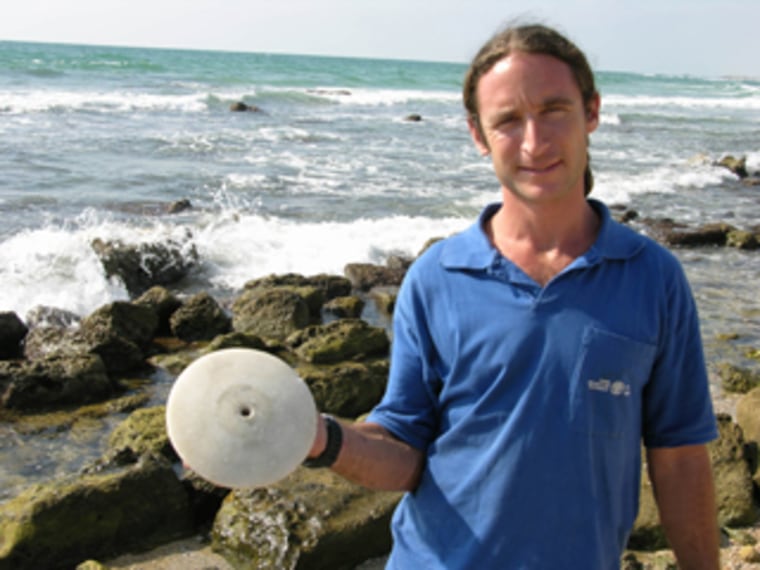An Israeli lifeguard taking his regular morning swim off the Mediterranean coast in southern Israel discovered a 2,500-year-old marble talisman to ward off the evil eye, the Israel Antiquities Authority said Sunday.
The lifeguard turned over the ancient disc that once adorned the bow of an ancient warship or cargo ship to keep evil away, the Israeli archaeology body said.
Experts say the relic, discovered off the coast Palmahim beach where the ancient Yavne-Yam port city once stood, dates back to the 5th or 4th century B.C. The white disc, flat on one side and convex on the other, measures 8 inches (20 centimeters) in diameter. The center of the disc is perforated, and the remains of two circles are painted around the center of it to represent the pupil of an eye.
Yaakov Sharvit, director of the Marine Unit of the Israel Antiquities Authority, said the finding confirms mythological tales about superstitious sailors.
"We know from drawings on pottery vessels ... that this model was very common on the bows of ships and was used to protect them from the evil eye and envy, and was meant as a navigation aid and to act as a pair of eyes which looked ahead and warned of danger," Sharvit told The Associated Press.
"But we thought the eyes were only on fighting ships, not merchant ships. Only four eyes like these have been discovered in the world," he added.
Sharvit praised the lifeguard, David Shalom, for handing the rare relic over to authorities, rather than pocketing it as many others have been suspected of doing.
"This was an act of good citizenry," he told the AP.
Shalom said he was snorkeling when he caught a glimpse of the disc and dived to get it.
"It captured my curiosity, so I asked someone what it was," he said. "I didn't think it was something so important, but I'm very happy that it is."
The port city of Yavne-Yam was first settled in the Middle Bronze Age and was inhabited until the Middle Ages. The modern city of Yavne is currently located nearby.
Archaeological surveys in the region since the 1980s have turned up other maritime artifacts, such as anchors, weights, fishing equipment, ovens for cooking, storage jars, bowls and cooking pots that date to the Late Bronze Age, Persian, Hellenistic, Roman and Byzantine periods.
